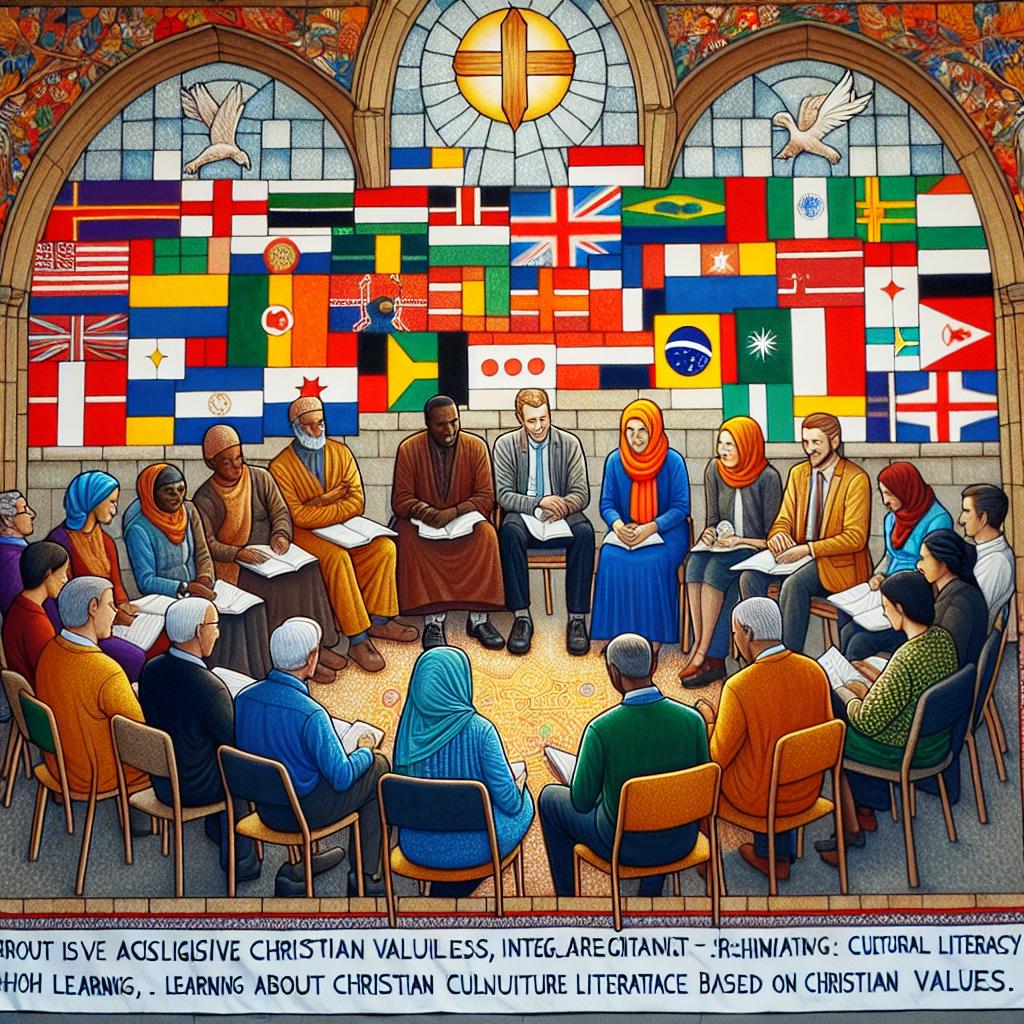
Ultimate Guide to Christian Integration and Assimilation: Embracing Unity in Faith
Published: 28 June 2024
Integration and Assimilation: A Biblical Perspective
Integration and assimilation are complex topics that involve the merging of different cultural, ethnic, and social groups into a cohesive society. From a conservative biblical perspective, it is important to understand these concepts in light of Christian values and principles. This article will explore eight key questions related to integration and assimilation, providing thorough answers grounded in Scripture.
1. What is the biblical view of integration and assimilation?
Integration and assimilation, as understood from a biblical perspective, involve the harmonious coexistence of diverse groups within a society while maintaining their distinct identities. The Bible teaches that all people are created in the image of God (Genesis 1:27) and are therefore equal in value and dignity. As followers of Christ, we are called to love our neighbors as ourselves (Mark 12:31) and to seek unity and peace among believers (Ephesians 4:3).
2. How can Christian values contribute to a successful integration program?
Christian values, such as love, compassion, and respect for others, are essential for a successful integration program. By embracing these values, Christians can extend hospitality, support, and encouragement to immigrants and newcomers. The Bible instructs us to welcome strangers and treat them with kindness (Hebrews 13:2). Christian organizations can provide practical assistance, language classes, job training, and mentorship programs to help immigrants integrate into their new communities.
3. How can the UK church promote immigrant assimilation while maintaining its Christian identity?
The UK church can play a vital role in immigrant assimilation by providing support networks, cultural literacy programs, and opportunities for newcomers to learn about Christian values. While promoting assimilation, it is crucial for the church to maintain its Christian identity by grounding its teachings and practices in Scripture. The church should prioritize teaching the Gospel message of salvation through faith in Jesus Christ and upholding biblical principles in its activities and outreach efforts.
4. What role does faith-based citizenship requirements play in integration?
Faith-based citizenship requirements can serve as a means to ensure that immigrants have a genuine commitment to the values and principles of the host country. While these requirements should not be used to discriminate against individuals based on their religious beliefs, they can provide a framework for immigrants to understand and embrace the foundational values of their new home. It is important, however, to balance these requirements with respect for religious freedom and the recognition that true integration goes beyond legal formalities.
5. How can Christian cultural literacy programs benefit immigrants?
Christian cultural literacy programs can benefit immigrants by providing them with an understanding of the cultural and historical context of their new home. These programs can teach newcomers about the foundational Christian values that have shaped Western societies, such as the importance of individual freedom, human dignity, and the sanctity of life. By equipping immigrants with this knowledge, they can better navigate societal norms, engage in meaningful conversations, and contribute positively to their new communities.
6. How does religious tolerance education help newcomers integrate into a society?
Religious tolerance education plays a crucial role in helping newcomers integrate into society by promoting understanding, respect, and acceptance of different religious beliefs. From a biblical perspective, Christians are called to love their neighbors regardless of their religious background (Matthew 22:39). Religious tolerance education should focus on fostering mutual respect while affirming the unique claims of Christianity. It is through respectful dialogue and engagement that people can build bridges of understanding and work towards a harmonious coexistence.
7. How can the church promote religious tolerance without compromising biblical truth?
The church can promote religious tolerance without compromising biblical truth by adhering to the teachings of Scripture while demonstrating Christ-like love towards those of different faiths. The Bible encourages believers to speak the truth in love (Ephesians 4:15) and to engage in respectful dialogue (1 Peter 3:15). The church should uphold the exclusivity of salvation through Jesus Christ while still respecting the religious freedom and dignity of individuals from other faith traditions.
8. What can Christians do to foster a culture of integration and assimilation?
Christians can foster a culture of integration and assimilation by actively engaging with immigrants and newcomers in their communities. This can involve reaching out with acts of kindness, providing practical assistance, offering language classes, and creating opportunities for cultural exchange. Christians should also be intentional about building relationships with immigrants, listening to their stories, and learning from their experiences. By embodying the love of Christ, Christians can contribute to the flourishing of diverse communities that honor God and reflect His kingdom values.
In conclusion, integration and assimilation are important concepts that should be approached from a biblical perspective. As Christians, we are called to embrace diversity, extend love and hospitality, and promote unity within our communities. By adhering to biblical principles, we can contribute to the successful integration and assimilation of immigrants while remaining faithful to our Christian identity.
